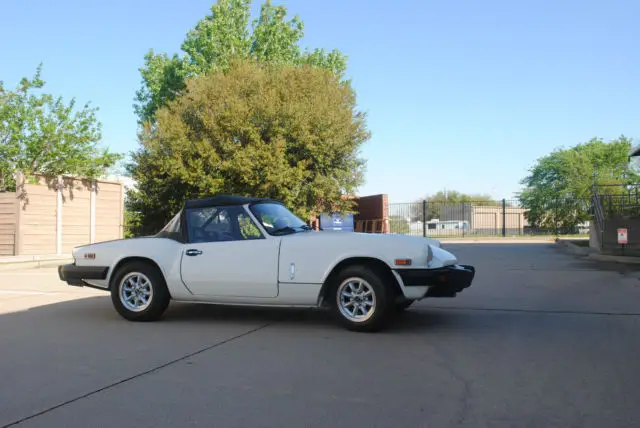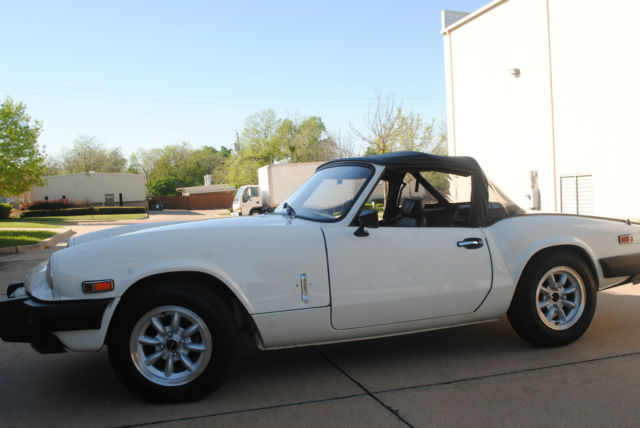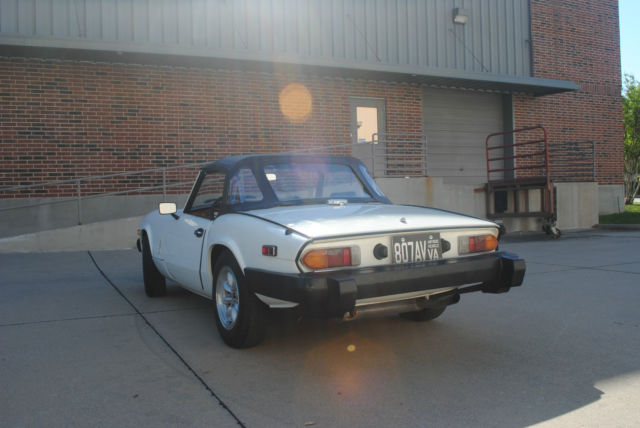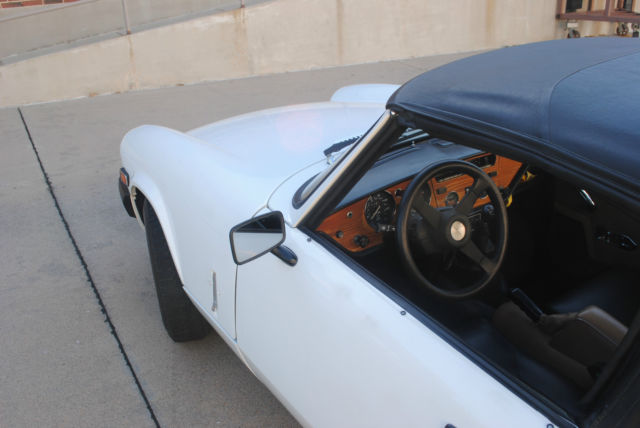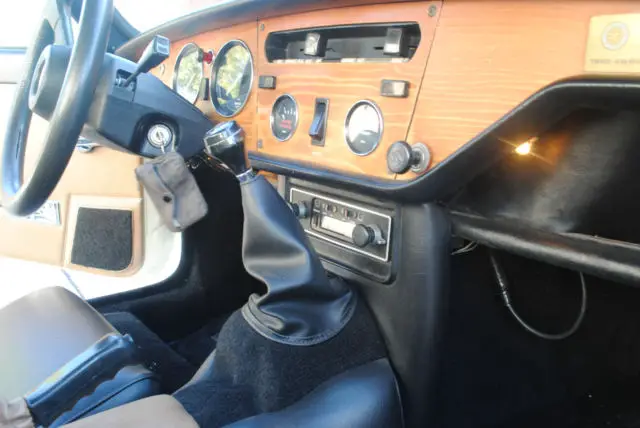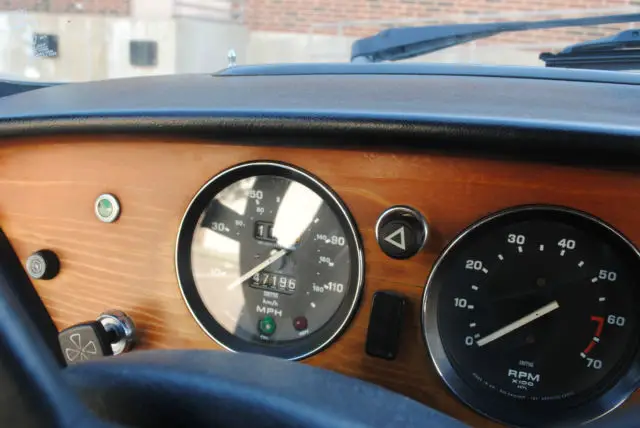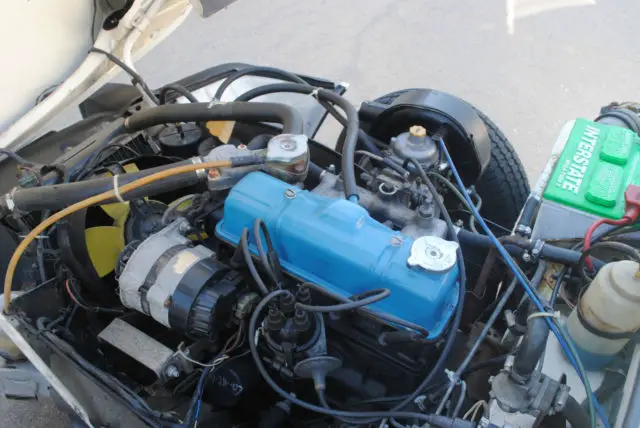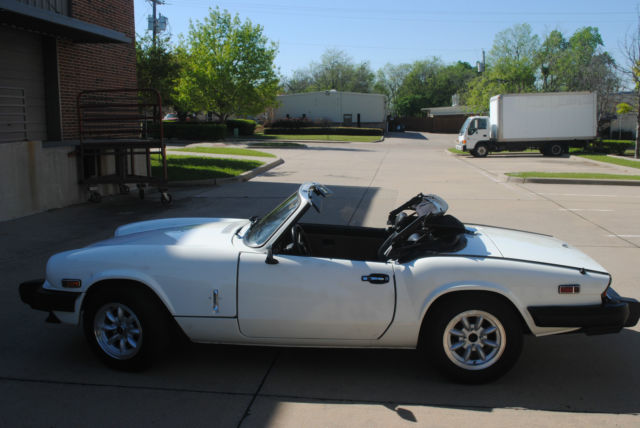1979 Truimph Spitfire
| Condition: | Used |
| Make: | Triumph |
| Model: | Spitfire |
| Trim: | MK4 |
| Year: | 1979 |
| Mileage: | 47,196 |
| Color: | white |
| Engine: | 1500 |
| Cylinders: | 4 |
| Drive type: | RWD |
| Interior color: | tan |
| Vehicle Title: | Clear |
| Item location: | Carrollton, Texas, United States |
| Extras |
| Listed by | Private seller |
Description of 1979 Triumph Spitfire |
|
In the world we live in now, classic British sports cars have become less and less affordable. A Jaguar E-type roadster, even a Series 2 driver-level car, can cost more than $70,000, and a Triumph TR4 or MGA can cost more than $30,000. Compared with the classic car market as a whole, that might not seem like a lot of money. But many people do not have that much to spare for a classic car. There is hope, though. One vintage British sports car that is still attainable whatever your budget is the Triumph Spitfire which offers the classic British sports-car experience on a budget. The Triumph retains the original Spitfire styling cues The Spitfire was introduced in 1962 as an affordable sports-car alternative to compete with the Austin Healey Sprite and MG Midget. With a body by Italian designer Giovanni Michelotti, the Spitfire was a swoopy and exciting-looking car, and it offered exactly what people were looking for in an affordable sports car. If you doubt that, consider that from 1962 until the end of production in 1980, Triumph sold a total of 314,372 Spitfires. it was only when the Mk4 Spitfire was launched did the sometimes unpleasant handling characteristics of the swing axle rear suspension become addressed. Previously, Triumph Spitfire models, as well as the Herald, Vitesse and GT6, suffered from an alarming and somewhat dangerous tuck–under effect by either one of the rear wheels during hard cornering. This was a characteristic of the swing axle suspension. The Triumph Spitfire was a rear wheel drive car, but unlike most cars of that drive configuration, the differential was fixed to the chassis as un–sprung weight. Drive was transmitted to each of the rear wheels from the differential via exposed drive shafts, each of these having its own universal joint at the inboard end to account for suspension travel. The rear suspension of the Spitfire, Herald and GT6 consisted of a single set of leaf springs fitted transversely with the centre clamped to the top of the differential casing by a steel plate and six bolts. Each end of the spring was affixed to the wishbone at the wheel assembly where a telescopic damper completed the suspension set up. When driving the car in a spirited manner, and during hard cornering, the wheel on the outside of the bend was prone to tuck itself under the car, effectively jacking the rear of the car up off the road. This would cause dramatic over steer and has been responsible for some cars tipping over. From the Spitfire 4, and through Mk2 & Mk3 production, the design was never altered and this was despite complaints. It wasn’t until the conception of the Mk4 the rear swing axle suspension design weakness was properly addressed. For the Mk4 Spitfire, Triumph engineers came up with a solution for the that was both effective and cheap to implement. Instead of the transverse leaf spring being clamped to the top if the differential the spring was allowed to pivot at its center on a fulcrum allowing the road wheels to maintain a more even attitude to the road surface. The rear drive–shafts were each lengthened by one inch making a two–inch increase in the wheel–track, improving the road holding properties of the Triumph Spitfire still further. The handling of the sports car was transformed and meant that finally Triumph Spitfire drivers could throw their cars about without so much danger of being launched into the roadside scenery. With over 10k invested this looks like a solid driver and would make a great first-time classic British roadster, especially at the asking price of $7,800. These affordable to run and own Spits are becoming more rare, and this might be one of the last affordable British roadsters out there. The interior has undergone a full reworking and the engine runs smooth. Contact us 972 820 0260 Thanks |
 Home
Home Contact us
Contact us NEWEST CARS
NEWEST CARS SELL YOUR CAR
SELL YOUR CAR FAQ
FAQ